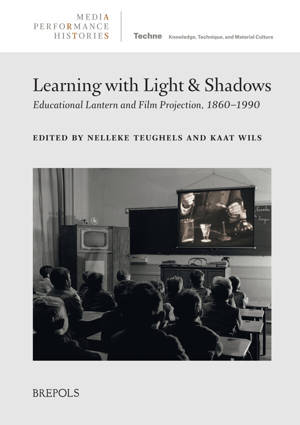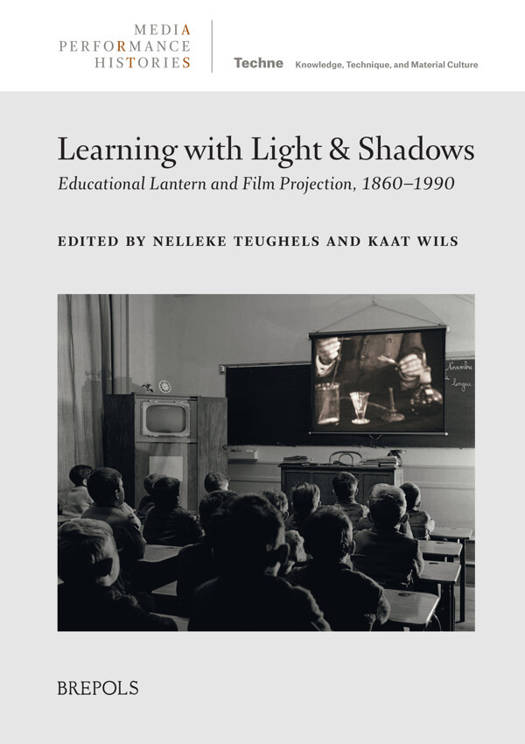
- Afhalen na 1 uur in een winkel met voorraad
- Gratis thuislevering in België vanaf € 30
- Ruim aanbod met 7 miljoen producten
- Afhalen na 1 uur in een winkel met voorraad
- Gratis thuislevering in België vanaf € 30
- Ruim aanbod met 7 miljoen producten
Zoeken
Learning with Light and Shadows
Educational Lantern and Film Projection, 1860-1990
Nelleke Teughels
Hardcover | Engels
€ 79,50
+ 159 punten
Omschrijving
Since the early 19th century, European pedagogical theory has stimulated a didactic turn towards the visual as an alternative to textual mediations of knowledge through books and lectures. Pedagogues and policymakers who strove for a more child-centred approach to teaching were soon joined by media producers and marketers in their aim to transform the classroom into a multimodal space for learning. From the turn of the 20th century onwards, teachers were increasingly pressured to incorporate high-profile media technologies such as stereoscopes, lantern and film projectors into their lessons. This collection of essays focuses on European educational light projection, from its first appearance at the end of the nineteenth century through the 1990s, when digital image projection started to gradually replace analogue film, slide and overhead projectors. It explores the classroom use of these technologies. In doing so, it challenges top-down approaches to the introduction of new visual technology and questions discourses that characterize the relation of visual media technology to teachers as one of consumption. The studies in this volume demonstrate how everyday demands and preferences transformed the 'ideal' instructional culture as put forward by policymakers, producers and pedagogues, into distinctive didactic practices that worked around or went beyond the pre-imposed ways of usage of visual media products. The volume moves beyond the view of instructional technology as a one-way route to modernization and teaching efficiency. By laying bare the power relations, interests and ideologies at play, the contributions also lend insight into the intertwinement between politics, media, material culture and classroom practices.
Specificaties
Betrokkenen
- Auteur(s):
- Uitgeverij:
Inhoud
- Aantal bladzijden:
- 268
- Taal:
- Engels
Eigenschappen
- Productcode (EAN):
- 9782503599045
- Verschijningsdatum:
- 16/02/2023
- Uitvoering:
- Hardcover
- Formaat:
- Genaaid
- Afmetingen:
- 183 mm x 262 mm
- Gewicht:
- 675 g

Alleen bij Standaard Boekhandel
+ 159 punten op je klantenkaart van Standaard Boekhandel
Beoordelingen
We publiceren alleen reviews die voldoen aan de voorwaarden voor reviews. Bekijk onze voorwaarden voor reviews.








